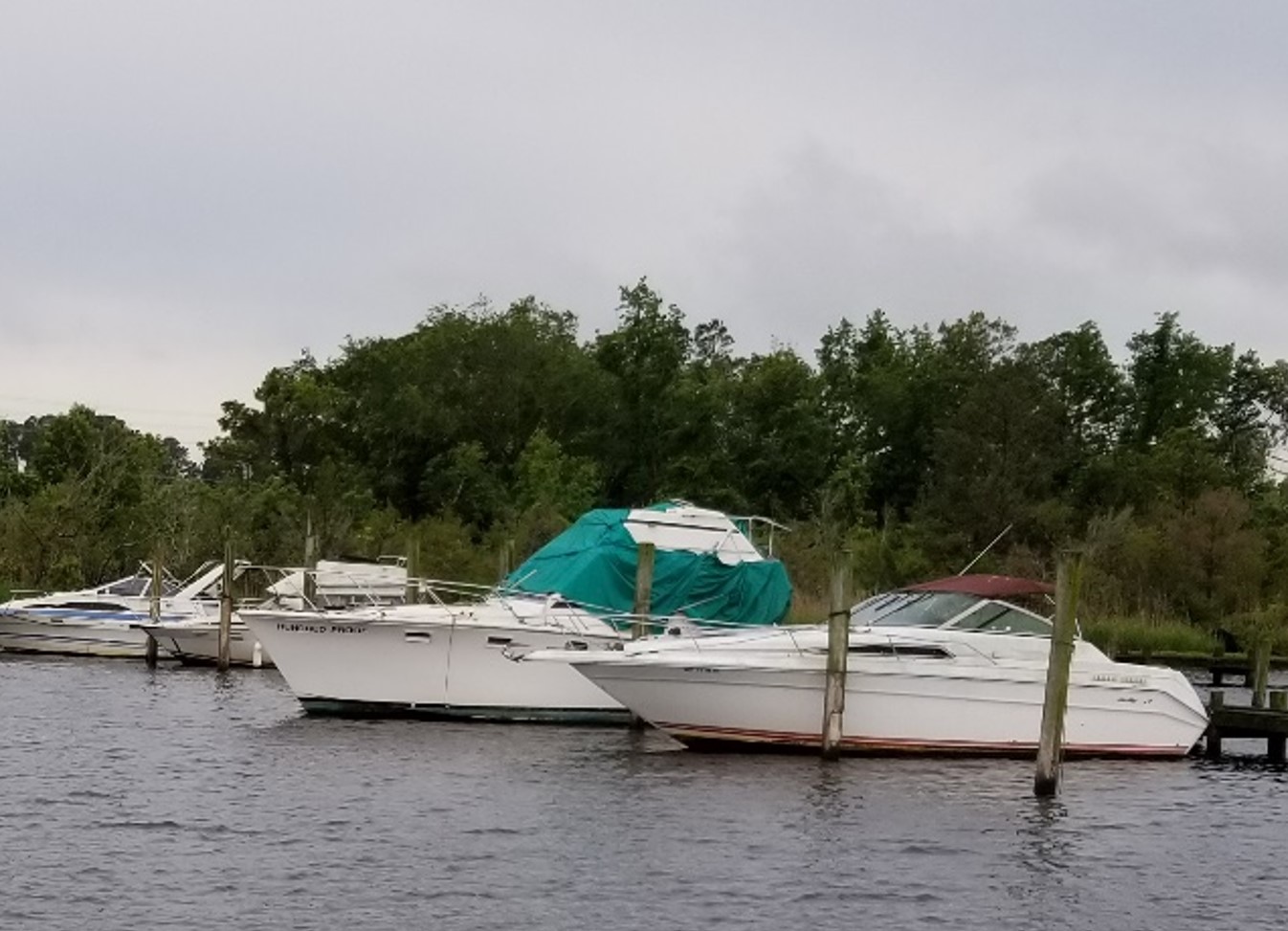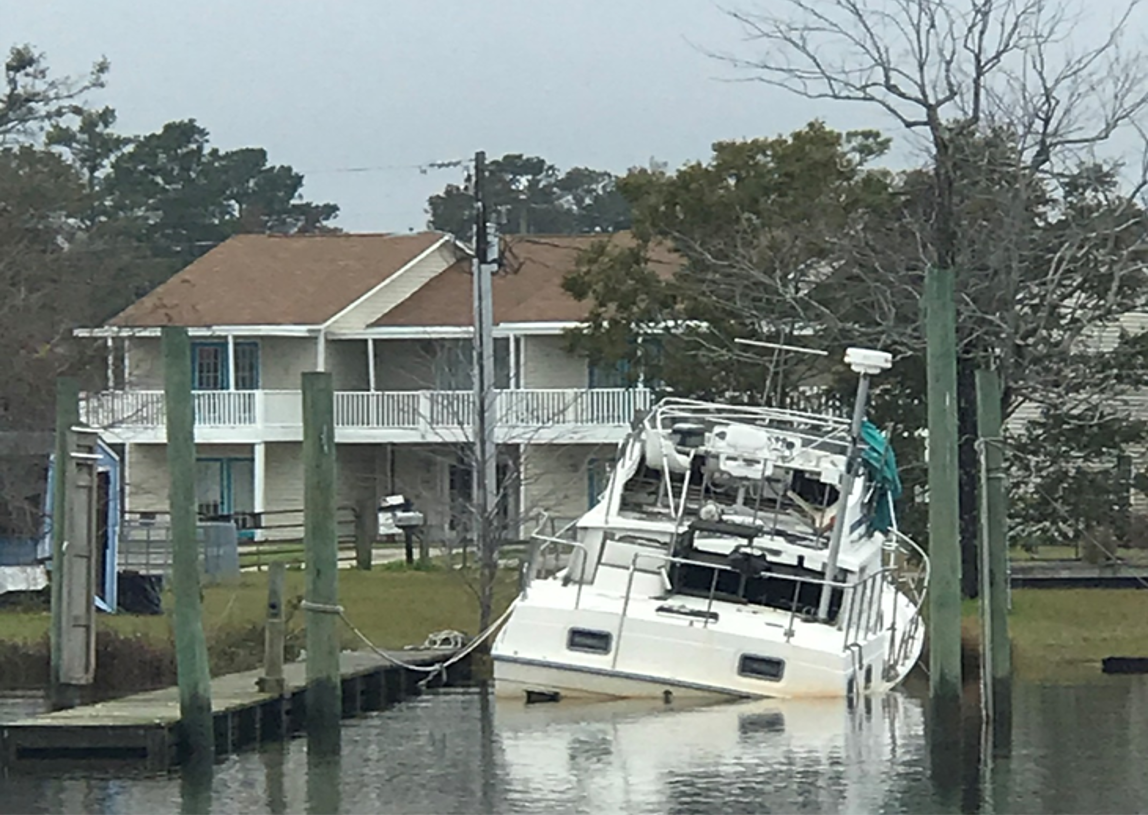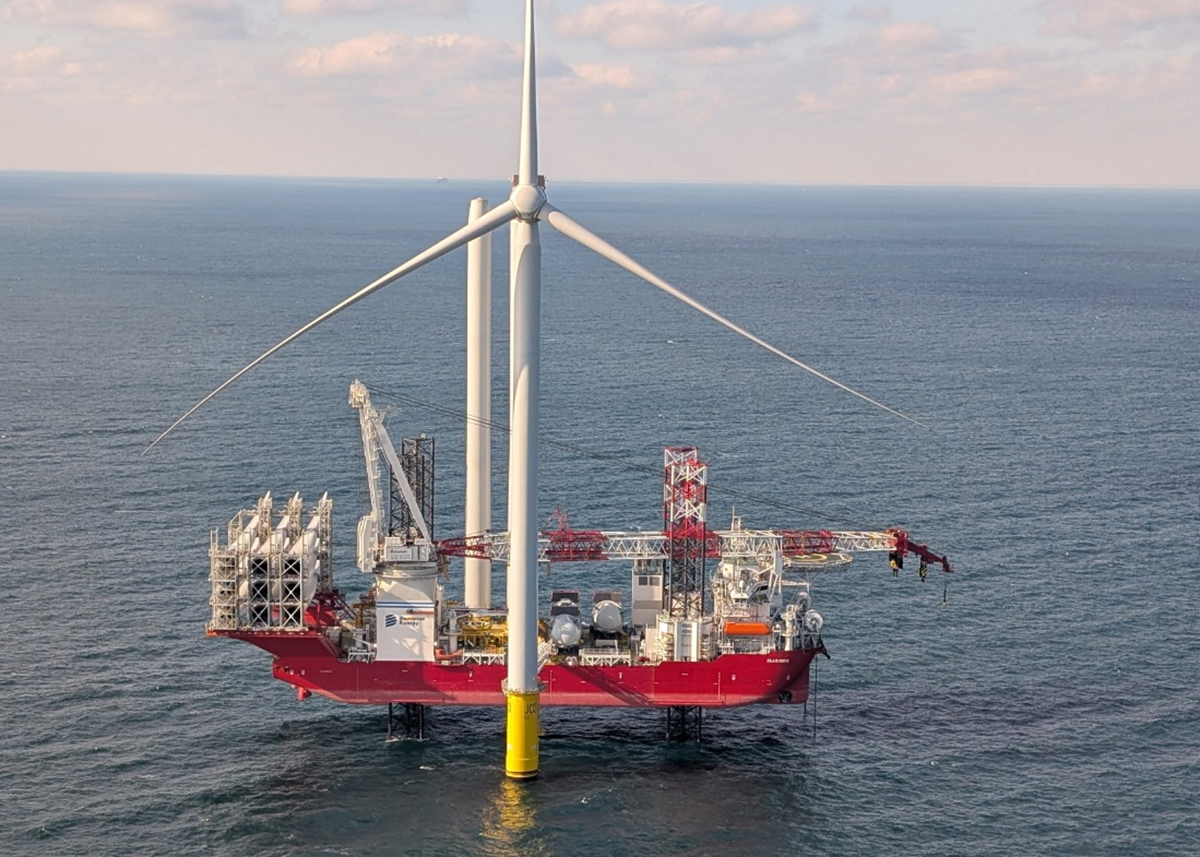
Another coastal town is taking steps to clean up abandoned and derelict vessels, or ADVs, in its waterways.
Last month, the Jacksonville City Council approved an ordinance to tackle the more than a dozen ADVs that are a threat to navigation, a possible source of pollution in the New River and a potential hazard during the next storm.
Supporter Spotlight
Madison McCann and Aaron Houran, city water quality technicians, presented the ordinance amending city code dealing with motor vehicles during the council’s Oct. 20 meeting. The two attended conferences and consulted with other towns with their own ADV ordinances, including New Bern, Manteo and Beaufort.
“We have about 15 vessels in our city limits right now that we believe meet the criteria as an abandoned or derelict vessel and these vessels present a multitude of issues for the city of Jacksonville,” McCann told the council. “One being that they’re a navigational hazard, especially in the narrow and shallow waterway of the New River that flows through downtown Jacksonville. They are an overall aesthetic problem for downtown Jacksonville, while also threatening the valuable residential and city-owned property located in the area.”
She said another area of concern is that the boats are often grounded on shoreline areas, or resting on the bottom, which pose a threat to the sensitive aquatic habitat in the New River. “And lastly, and most importantly, this is an issue we’ve seen persist and worsen with every storm event, adding additional vessels in our waterways, or damaging the vessels we currently have right now.”
McCann and Houran, in a follow-up email, told Coastal Review Online that ADVs have been a regular nuisance and a growing problem on the New River.
“From an environmental conservation approach, we were concerned with the marine debris and hazardous liquids often associated with ADVs. The New River has come a long way from the degraded habitat it once was in the 1990s and we wanted to see the environment continue to thrive and repair,” they wrote. “We wanted to address the issue of ADVs but found there was little we could do on a local level because of a lack of legislation. In 2019, we learned about House Bill 429 through an Abandoned and Derelict Vessel workshop hosted by the North Carolina Coastal Federation. We were excited to learn that we were being given the authority to write ordinances tailored to addressing vessels within our municipal limits.”
Supporter Spotlight
Now that the ordinance has been approved, the city is in the process of gathering information about the vessels and assessing what it will require to remove them.
“From there, it will be very similar to the approach taken for abandoned cars on the side of the road. The vessels will be tagged and we will make every effort to contact the owner. If the owner fails to respond in a certain amount of time, or if the owner responds and relinquishes the vessel, it will be removed,” they wrote.
They emphasized that the goal is to work with owners to bring the vessels into compliance with the law. “Our goal is not to remove any and all vessels, just simply push for all boats on the New River to be in safe working conditions and safe locations so that all may use the river.”
McCann explained during the meeting that this is not a new problem.
“The fact that abandoned and derelict vessels have plagued the North Carolina coast for some time has led to some local and state legislation regarding abandoned and derelict vessels,” she said.
The North Carolina General Assembly in 2019 passed House Bill 429 giving municipalities power to enact and enforce ordinances addressing ADVs in their waterways. McCann said the proposed amendment presented to the city council was drafted using those general statutes and local codes.

The amendment defines an abandoned vessel as a vessel that has been relinquished, left or given up by the lawful owner, without the intention to later resume any right or interest in the vessel. The vessel must meet eight conditions to be considered an ADV, including having improper, nonworking or no anchor light, unable to be used for navigation and in danger of breaking its mooring, sinking or taking on water.
Houran reviewed numerous vessels with the city council during the meeting, pointing out what makes the vessels qualify as an ADV, including one named 100 Proof.
“When I first started here (more than two and a half years ago), this vessel was located along Shoreline Drive tied to some pylons during Hurricane Florence,” Houran explained. “It actually broke its mooring and was later found drifting, dragging anchor back and forth in Wilson Bay.”

He said it was there for three to four months before being secured. The interior is exposed to the elements, there is no working anchor light, and the vessel has been neglected or partially dismantled.
Another vessel mentioned is a large shrimp trawler just north of Goat Island.
While trying to gather information about the trawler, Houran said, “The one thing I heard over and over again, is I don’t know how long it’s been there,” adding that it’s been there at least five years. “It’s almost been sort of a landmark on the water.”
McCann said that, as city employees, they take pride in promoting navigational safety on the New River, but the vessels moored in the navigable channel outside of Laguna Bay make it difficult for recreation and commercial use.
“Lastly, from a stormwater perspective, these vessels continued to threaten the city’s efforts to rehabilitate the New River and the sensitive marine habitat that we fought to bring back to the city of Jacksonville,” she said.
Regarding funding sources to support removing ADVs, McCann said the city is in contact with the North Carolina Wildlife Resources Commission and the North Carolina Coastal Federation.
“They’re working to determine if our vessels are qualified for removal through their three funding sources,” she said, adding that two of the vessels are currently on the list for removal.
“Our hope is that working with these entities, they will not only offset some removal costs for the city, but also help us through the process,” she said, noting that the coastal federation had advised that it would be willing to help secure grant funding through the National Oceanic and Atmospheric Administration’s marine debris program.
Sarah Bodin, a coastal restoration specialist with the federation, called the city’s action “an important milestone” in addressing the problem of abandoned and derelict vessels and the threats they pose to water quality, the economy and local habitats.
City Manager Richard Woodruff explained to the council that just as with housing issues, there must be a legal process.
“We have worked to create a process very similar to what you do with any code issue on land. It is identified in the actual ordinance,” he said. “You can see the highlights and the notification must be given, action must go through a series of legal processes, relative to the number of days the party has to respond and correct any of the violations.”
Woodruff said one difficult aspect is that with some of the vessels, the control numbers and registration numbers have been removed, making it difficult to identify an owner.
“In that case, the ordinance does require us to board the vessel to placard the vessel notifying anyone that it must be corrected within a 10-day period. We will make every effort we can to research the records to determine who the owner is,” he said.
Woodruff said the city sees this effort as a continuation of the Clean and Green Jacksonville program, which has resulted in 134 vacant and dilapidated houses being removed. “So this is just another step in cleaning up the appearance of the city.”
McCann and Houran wrote in the email that the city is just beginning to assess the removal considerations and costs for the appropriate vessels. “There are multiple agencies that we are hoping to utilize to help with removing several of these vessels.”
McCann and Houran described the New River as a rich and diverse estuary. The city wants to continue to promote boating, they said.
“Our goal with this new ordinance is to provide residents and tourists with the best possible experience for generations to come. With that being said, we want to work with the owners of these vessels, allowing them every opportunity to either claim, remove, or bring these vessels into compliance with the law,” they said in the email, adding that the ordinance was the result of the work of multiple city departments and representatives.







